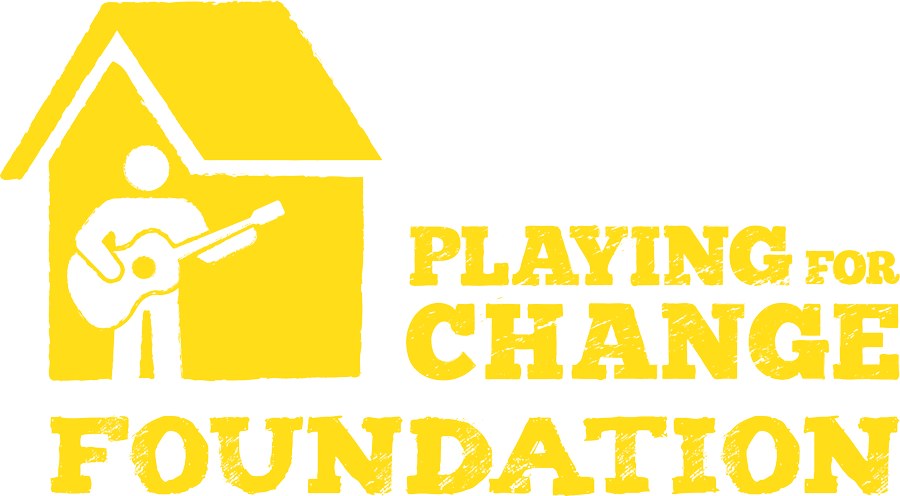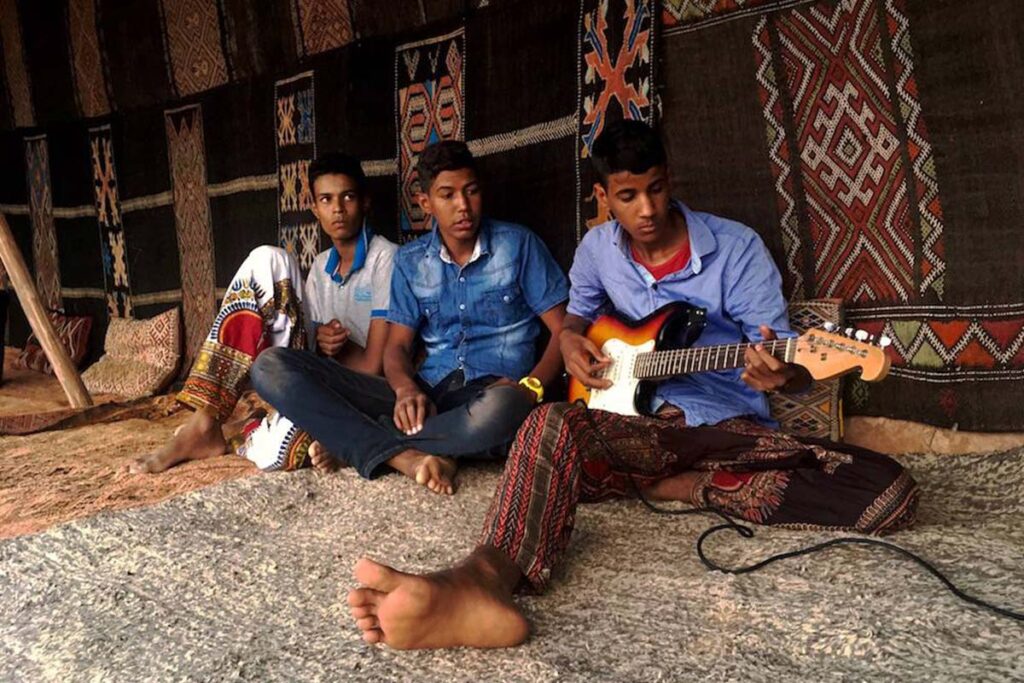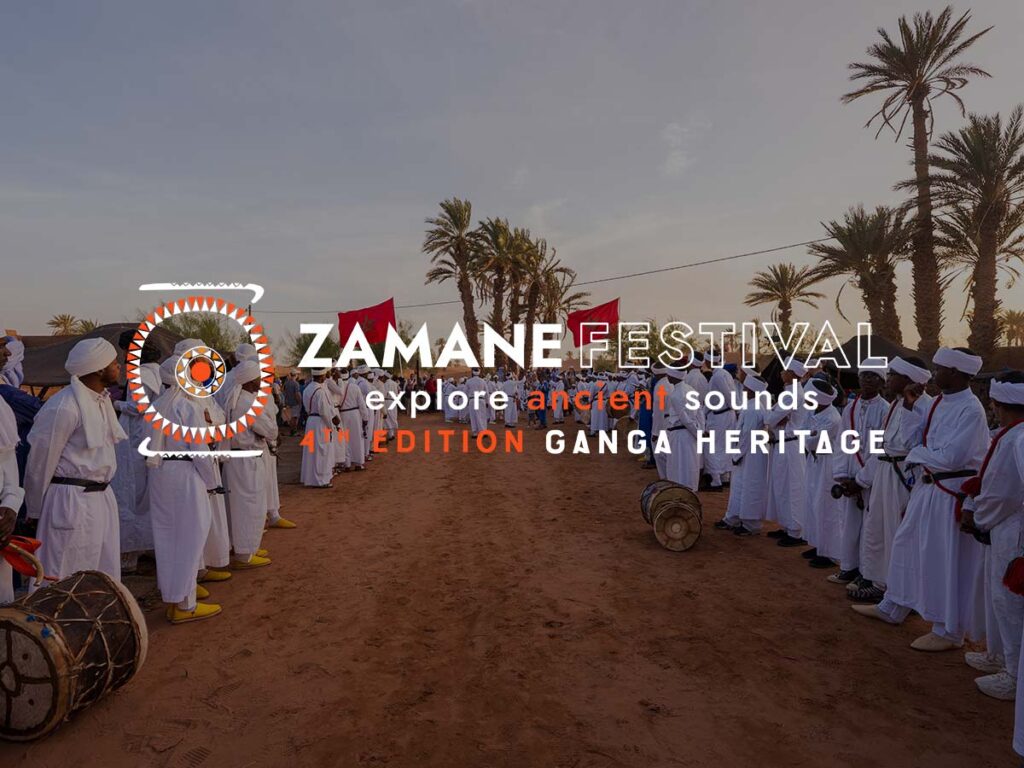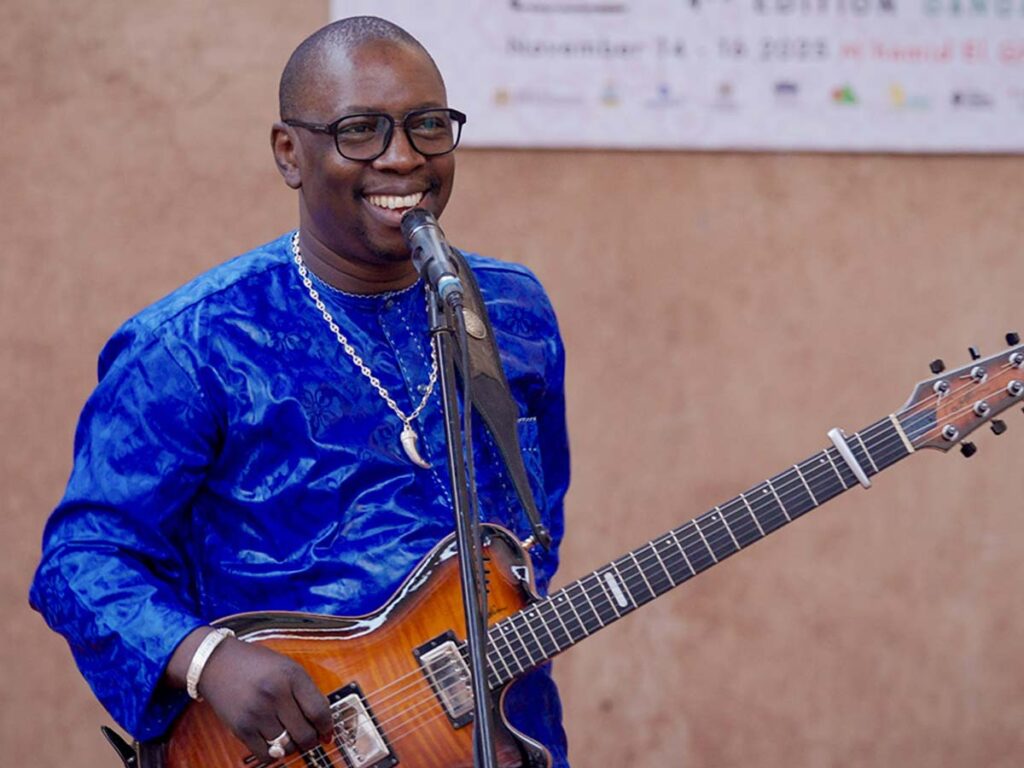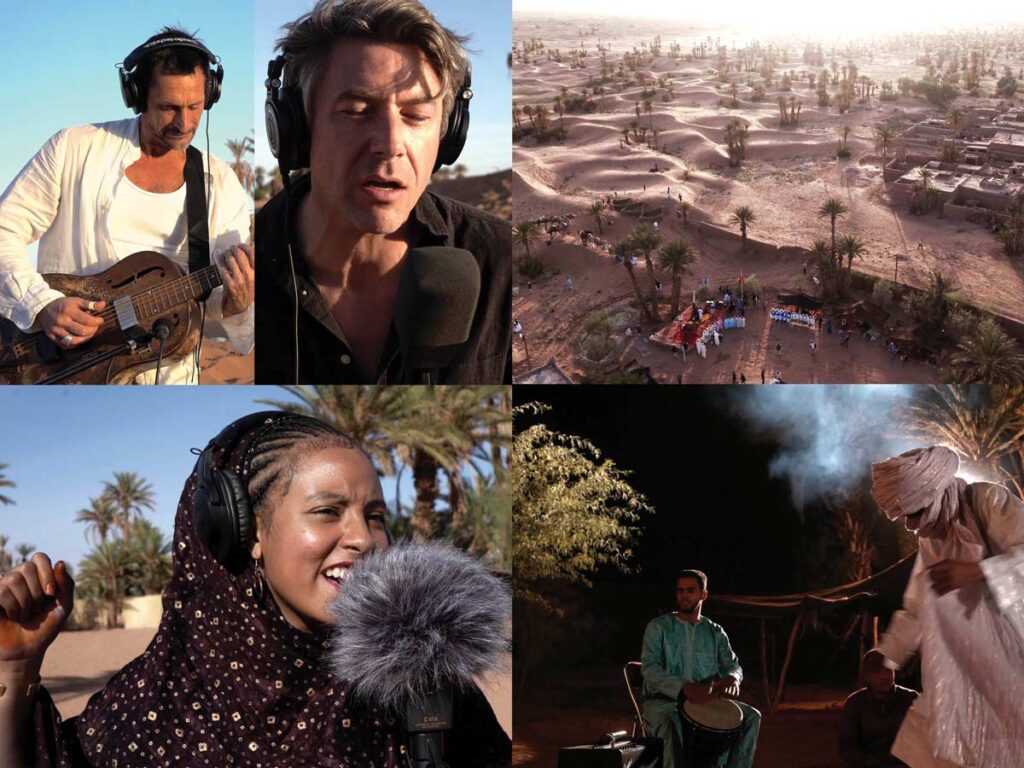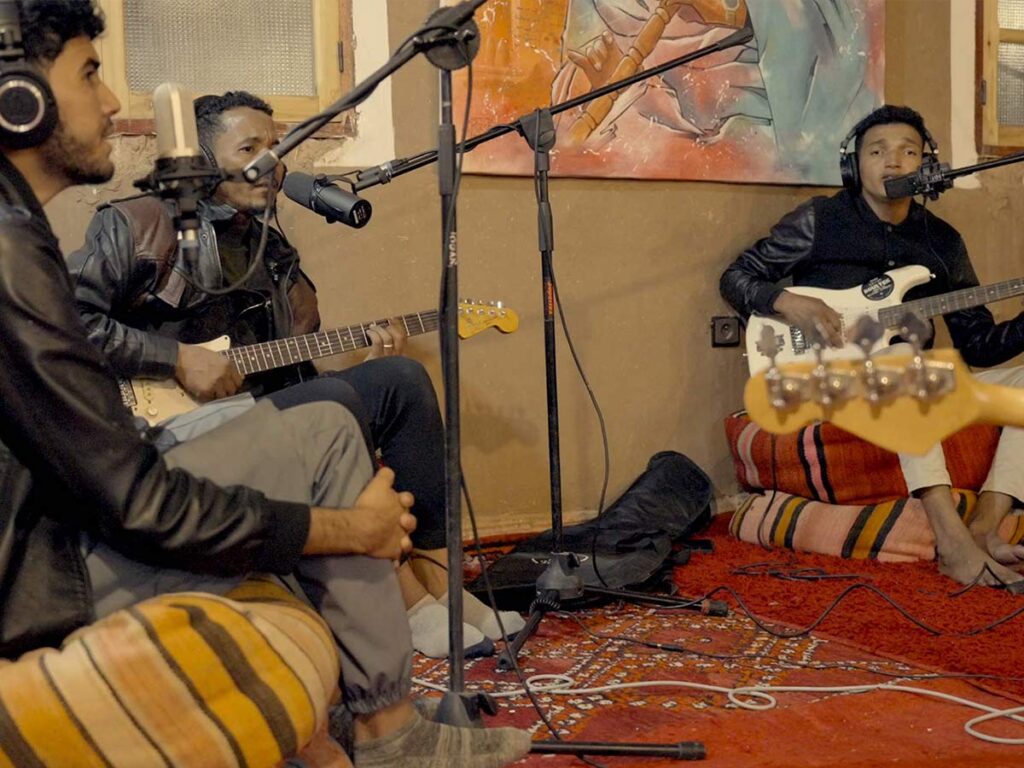Joudour Sahara Music Program
November 2nd, 2016 –
We’re proud to announce the launch of the first phase of a new project in Morroco: the Joudour Sahara Music School. Located in the Sahara desert, in the little town of M’hamid, this new music program will focus on preserving a valuable and ancestral cultural knowledge, and provide music education to the youth in this remote area of Morocco. The Joudour Sahara Music School is an ambitious project, that includes the construction of facilities embedded in this beautiful natural environment. As we launch the fundraising campaign for the construction of these facilities, we will humbly begin classes this week with students and local and international musicians performing at the Festival Taragalte out in the sand dunes of the sahara, music’s most natural environment here in M’hamid.
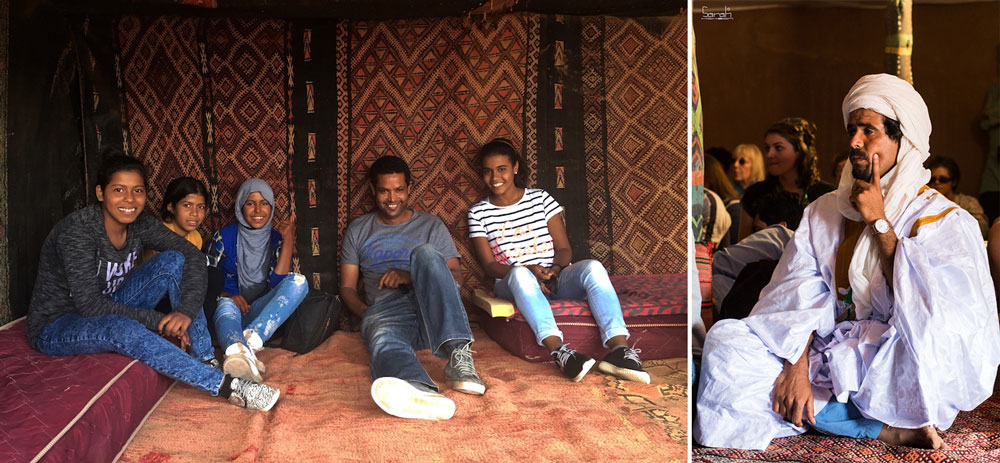
Here is some of the back story behind this project.
In 2008, brothers Halim and Ibrahim Sbai ventured to begin the Festival Taragalte, a means to celebrate the natural and cultural heritage of the Moroccan Sahara, after working in the region in the domains of culture and environment with the Dutch-based Sahara Roots since 2005. Taragalte that first year featured the iconic Saharan blues band Tinariwen, and from that point forward, Taraglate became a mainstay in Morocco. They have since joined forces with the two biggest festivals in Africa, the Festival of the Desert in Mali and the Festival of Sego Sur le Niger, to create the Cultural Caravan of Peace, where artists from each country band together to perform at each festival and promote the message of peace and tolerance and the diverse culture found throughout the Sahara and Sahel.
Fast forward to 2015, when PFCF Advisory Board member Stacie Freasier picked up on the musical richness of the region during her visit to Morocco, and subsequently connected with the Sbai brothers and the about the potential of a music school being created through the Taragalte Concept in their hometown of M’hamid El Ghizlane. Now, a core team consisting of Stacie, PFCF Director of African Programs Francois Viguie, former Peace Corps Volunteer Thomas Duncan, Moroccan born and TED fellow architect Aziza Chaouni, and Wanda Hebly, president of Sahara Roots, the Joudour Sahara Music School includes a vast wealth of knowledge and experience for the education and development of youth in M’hamid El Ghizlane.
LIFE IN THE COMMUNITY
For the residents of M’hamid, life is defined by the desert and the oasis. A rich cultural diversity exists here and throughout the region due to the migration of tribes from different parts of Africa and the Arab world centuries ago, mixing with the indigenous Amazigh population. These tribes proudly pass down their traditions and lifestyles, and an environment of peace and tolerance is a fundamental aspect of the community, entrenched among the locals over a long period of time.
Culture and environment are very intertwined here in M’hamid. The weather turns from blistering hot in the summer (reaching 130 degrees Fahrenheit regularly in July and August) to sandstorm season in March and April, which helps to propagate the date palm trees, the primary export and economic power in the region. Climate change is a very real presence locally, with little access to water becoming normal, and the encroachment of sand dunes onto precious farmland happening right now, working to disperse not only communities, but ancient traditions with them.
In M’hamid there is a great importance placed on the community and people moving together in groups. Whether it be families of 10 living under the same roof eating from the same central Tagine dish for their meals, or the ritual of preparing and sharing tea with whomever may be around, foreigner or local, the sense of inclusion is vital to the community. The passing down of music and poetry from generation to generation is another vital aspect of the community, as art and tradition serve as reassurances in a constantly changing world. It is the role of the youngest generation to learn from the past to bring the traditional Saharan art into future, so at to coexist with the modern.
For more information about the project and learn how you can collaborate please email info@playingforchange.org
